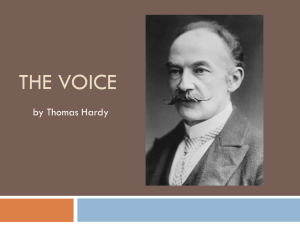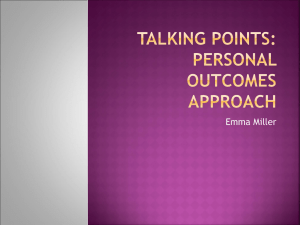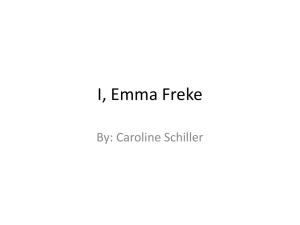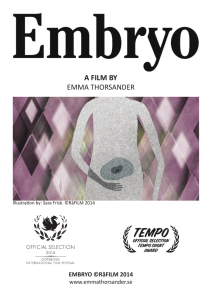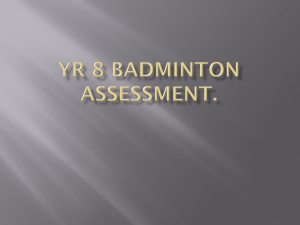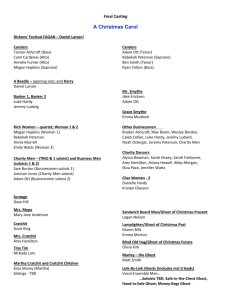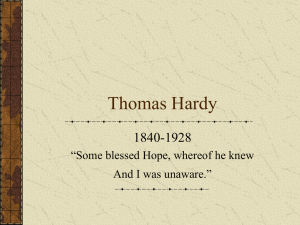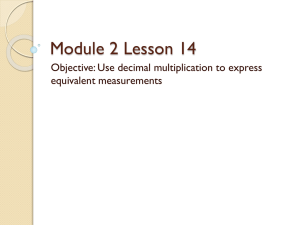Hardy's Emma Poems: Voice, Grief, and Memory
advertisement
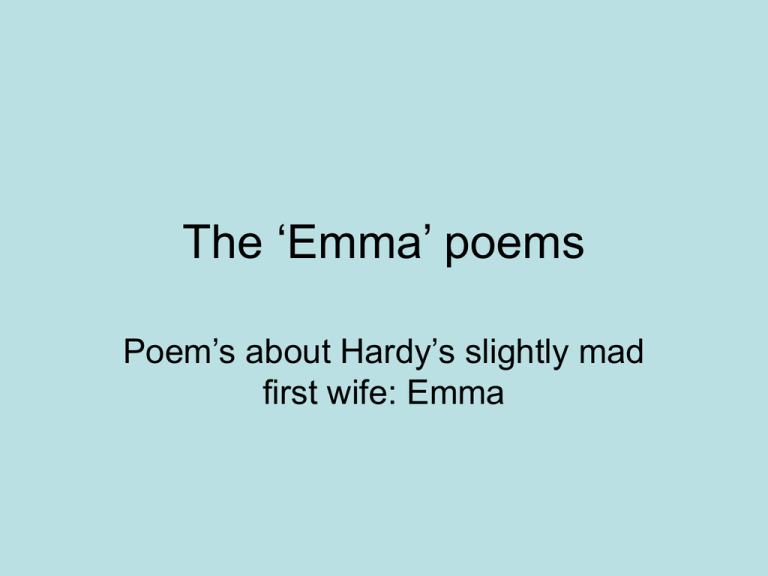
The ‘Emma’ poems Poem’s about Hardy’s slightly mad first wife: Emma Emma? • Thomas Hardy's relationship with his first wife Emma could be described as "strained" at best. Having begun their marriage like any normal couple, the two slowly grew apart over time. • When Emma died, Hardy appeared to regret the lacklustre relationship and began to write more about Emma and her departure. • Many of the poems about Emma express a certain amount of guilt for her death. He uses his writing to absolve himself of this guilt and come to terms with it. • Though the poems from this period are mainly about Emma and her death, some of Hardy's poems from this time also focus on his own mortality. He too will leave this world, and losing a loved one serves to emphasise this feeling. Before and after… (Let that be a lesson to us all.) Which poems are about Emma? • He wrote quite a few about her, but the best ones are those he wrote after she died: • The Going (p. 71) • The Voice ( p. 72) • The Haunter (p. 75) The Going • The Going, like most of the pieces in this section, is written in the first person - here Hardy evidently speaks for himself. The poem is in the form of a monologue addressed to Emma, containing many questions. She alone can give the answers. The Going Why did you give no hint that night That quickly after the morrow’s dawn, And calmly, as if indifferent quite, You would close your term here, up and be gone Where I could not follow With wing of swallow To gain one glimpse of you ever anon! The Going Never to bid good-bye, Or lip me the softest call, Or utter a wish for a word, while I Saw morning harden upon the wall, Unmoved, unknowing That your great going Had place that moment, and altered all. The Going Why do you make me leave the house An think for a breath it is you I see At the end of the alley of bending boughs Where so often at dusk you used to be; Till in darkening dankness The yawning blankness Of the perspective sickens me! The Going You were she who abode By those red-veined rocks far West, You were the swan-necked one who rode Along the beetling Beeny Crest, And, reining nigh me, Would muse and eye me, While Life unrolled us its very best. The Going Why, then, latterly did we not speak, Did we not think of those days long dead, And ere your vanishing strive to seek That time’s renewal? We might have said, ‘In this bright spring weather We’ll visit together Those places that we once visited.’ The Going Well, well! All’s past amend, Unchangeable. It must go. I seem but a dead man held on end To sink down soon….O you could not know That such swift fleeing No soul foreseeing – Not even I – would undo me so! The Voice (also about Emma and trying to come to terms with her death…) The Voice • In ‘The Voice’ Hardy imagines Emma trying to communicate with him. • The poem is in the first person, and Hardy is the speaker, imagining that Emma calls to him. • She tells him that she is not the woman she had become after forty years of marriage, but has regained the beauty of her youth, of the time when her and Hardy's “day was fair”. Look out for these words when you read the poem: • • • • • • • • • Call All Hear Near View Drew You Blue Breeze • • • • • • • • • • Mead dissolved Wistlessness Me Here Leaves Wind Thin Thorn Norward The Voice Woman much missed, how you call to me, call to me, Saying that now you are not as you were When you had changed from the one who was all to me, But as at first, when our day was fair. The Voice Can it be you that I hear? Let me view you, then, Standing as when I drew near to the town Where you would wait for me: yes, as I knew you then, Even to the original air-blue gown! The Voice Or is it only the breeze, in its listlessness Travelling across the wet mead to me here, You being ever dissolved to wan wistlessness, Heard no more again far or near? The Voice Thus I; faltering forward, Leaves around me falling, Wind oozing thin through thorn from norward, And the woman calling. The Haunter • He does not think that I haunt here nightly: How shall I let him know • That whither his fancy sets him wandering I, too, alertly go? • Hover and hover a few feet from him Just as I used to do, • But cannot answer the words he lifts me – Only listen thereto! The Haunter • When I could answer he did not say them: When I could let him know • How I would like to join in his journeys Seldom he wished to go. • Now that he goes and wants me with him More than he used to do, • Never he sees my faithful phantom Though he speaks thereto. The Haunter • Yes, I companion him to places Only dreamers know, • Where the shy hares print long paces, Where the night rooks go; • Into old aisles where the past is all to him, Close as his shade can do, • Always lacking the power to call to him, Near as I reach thereto! The Haunter • What a good haunter I am, O tell him, Quickly make him know • If he but sigh since my loss befell him Straight to his side I go. • Tell him a faithful one is doing All that love can do • Still that his path may be worth pursuing, And to bring peace thereto. What does it all mean? • The final stanza suggests that Hardy is investing ‘Emma’ with godlike status. • She is his Saviour (‘faithful one’) who is able to make ‘his path’ meaningful (‘worth pursuing’). • The stanza is also addressed to us as the reader. We are thus implicit in Hardy’s fantasy. He is using Emma as a mouthpiece. Write about Hardy’s use of voices in ‘The Going’, ‘The Voice’ and ‘The Haunter’. You do not need to write in equal detail about the poems. Friday 4th Feb.
